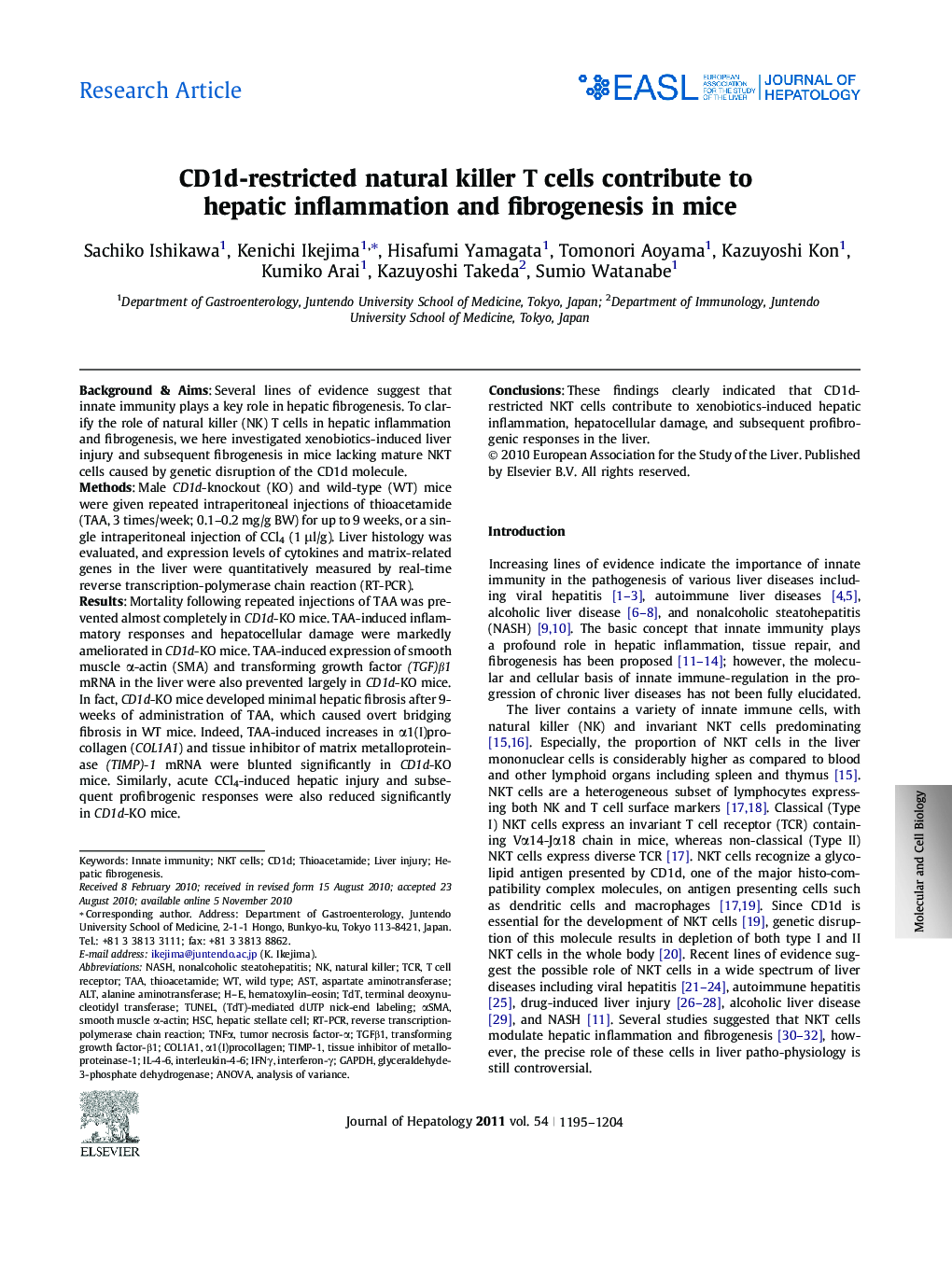| کد مقاله | کد نشریه | سال انتشار | مقاله انگلیسی | نسخه تمام متن |
|---|---|---|---|---|
| 6106119 | 1211156 | 2011 | 10 صفحه PDF | دانلود رایگان |

Background & AimsSeveral lines of evidence suggest that innate immunity plays a key role in hepatic fibrogenesis. To clarify the role of natural killer (NK) T cells in hepatic inflammation and fibrogenesis, we here investigated xenobiotics-induced liver injury and subsequent fibrogenesis in mice lacking mature NKT cells caused by genetic disruption of the CD1d molecule.MethodsMale CD1d-knockout (KO) and wild-type (WT) mice were given repeated intraperitoneal injections of thioacetamide (TAA, 3 times/week; 0.1-0.2 mg/g BW) for up to 9 weeks, or a single intraperitoneal injection of CCl4 (1 μl/g). Liver histology was evaluated, and expression levels of cytokines and matrix-related genes in the liver were quantitatively measured by real-time reverse transcription-polymerase chain reaction (RT-PCR).ResultsMortality following repeated injections of TAA was prevented almost completely in CD1d-KO mice. TAA-induced inflammatory responses and hepatocellular damage were markedly ameliorated in CD1d-KO mice. TAA-induced expression of smooth muscle α-actin (SMA) and transforming growth factor (TGF)β1 mRNA in the liver were also prevented largely in CD1d-KO mice. In fact, CD1d-KO mice developed minimal hepatic fibrosis after 9-weeks of administration of TAA, which caused overt bridging fibrosis in WT mice. Indeed, TAA-induced increases in α1(I)procollagen (COL1A1) and tissue inhibitor of matrix metalloproteinase (TIMP)-1 mRNA were blunted significantly in CD1d-KO mice. Similarly, acute CCl4-induced hepatic injury and subsequent profibrogenic responses were also reduced significantly in CD1d-KO mice.ConclusionsThese findings clearly indicated that CD1d-restricted NKT cells contribute to xenobiotics-induced hepatic inflammation, hepatocellular damage, and subsequent profibrogenic responses in the liver.
Journal: Journal of Hepatology - Volume 54, Issue 6, June 2011, Pages 1195-1204